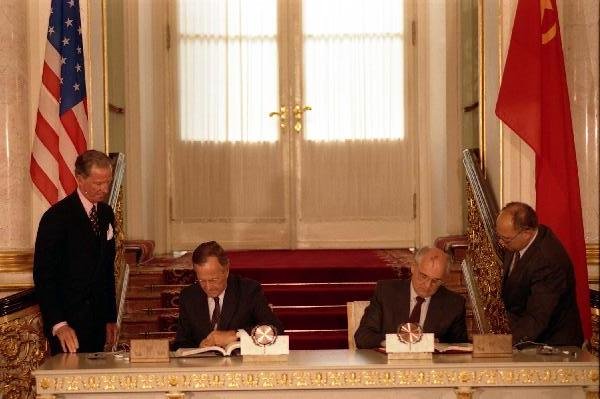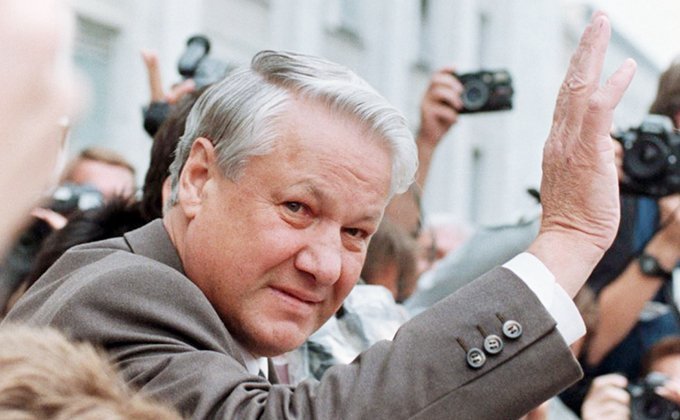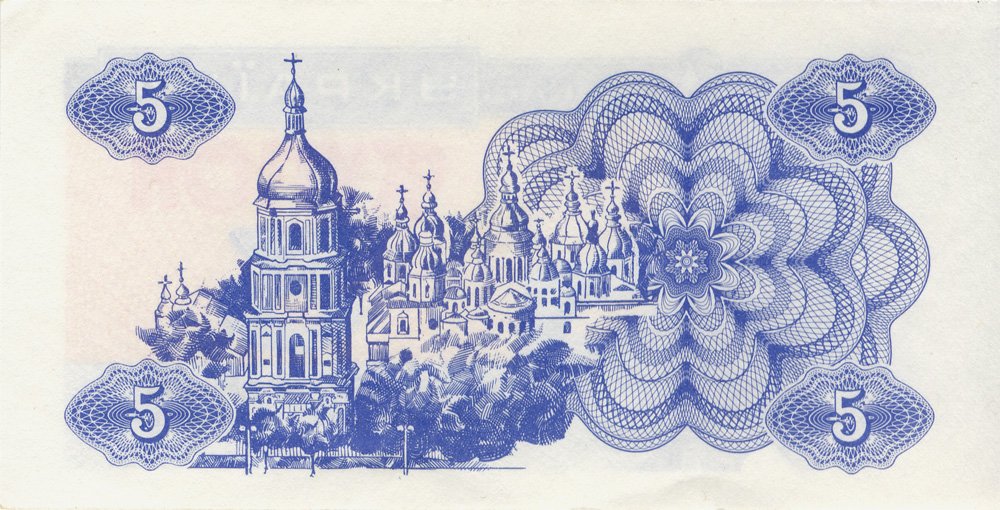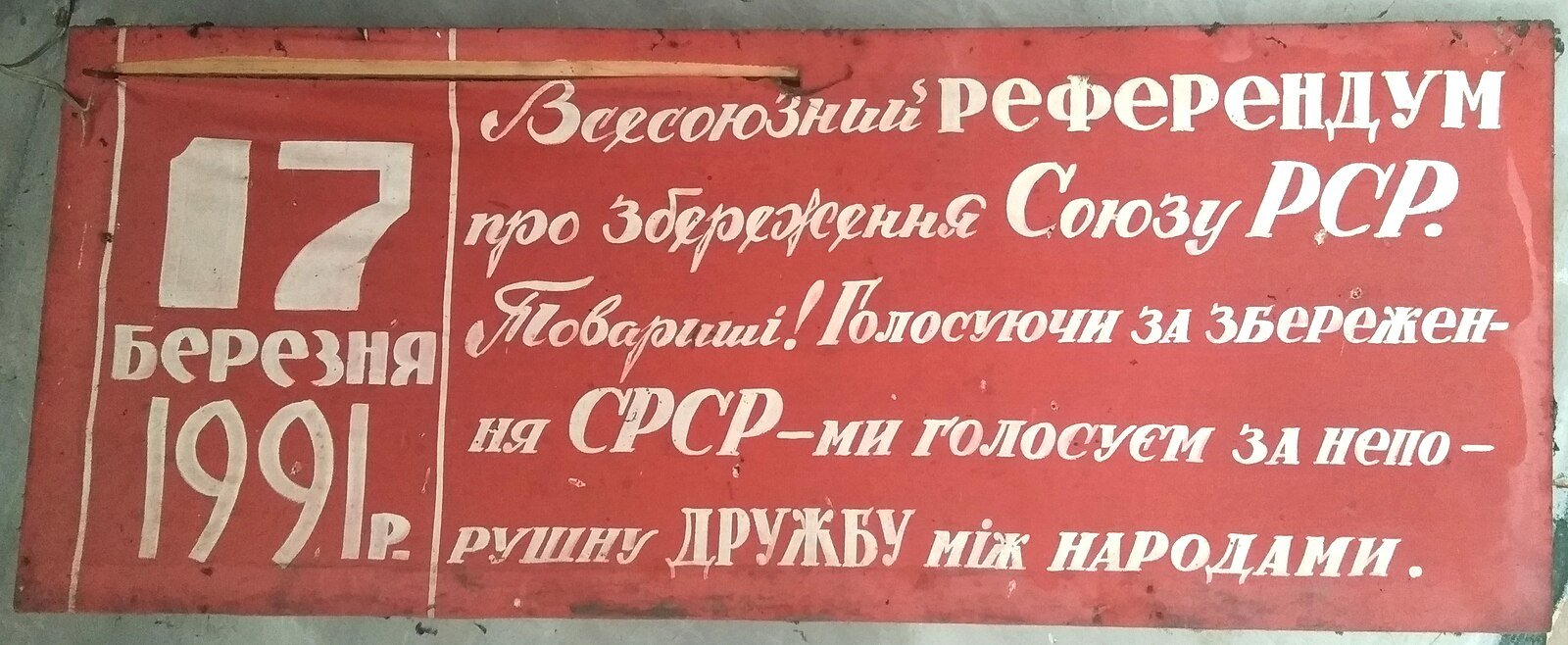The Collapse of the Soviet Union: Serhii Plokhy (1991)
Serhii Plokhy, author of The Russo-Ukrainian War
In this week’s episode Peter heads into the Penguin offices in London to speak with Serhii Plokhy about his new book, The Russo-Ukrainian War. They discuss how a culture of secrecy continues to define Russian society as it did before during the Soviet periodd. They talk about the progress of the war and Putin's failed attempt to establish a 'Eurasian Union'.
The book’s central argument, however, is that today’s conflict should be understood as a continuation of the collapse of the Soviet Union in 1991. Plokhy witnessed the unexpected fall of the USSR first hand. In this episode he takes us back to three central moments in that story.
*** [About our format] ***
The American historian George F. Kennan wrote, ‘I find it hard to think of any event more strange and startling, and at first glance more inexplicable, than the sudden and total disintegration and disappearance from the international scene, primarily in the years 1987 through 1991, of the great power known successively as the Russian Empire and the Soviet Union.’ How did such a political construction – one that had shaped and dominated global politics for much of the twentieth century – come to vote itself out of existence?
This is not only a puzzle that has troubled historians. The USSR’s collapse was an equal surpise to those who witnessed events at first hand. Many, like today’s guest, Serhii Plokhy, watched on in disbelief. Raised in Zaporizhzhia, Ukraine, Plokhy is one of Ukraine’s leading historians. In the summer of 1991 he was working as an academic and preparing for a spell of teaching in Canada, as the nation he had always known - then led by Mikhail Gorbachev - began to totter.
In August Plokhy witnessed an attempted coup in Moscow. Days later, having arrived in Canada, he heard Brian Mulroney, the prime minister, confirm to his surprise that he would recognise an independent Ukraine should people vote for it. At this point such a thing seemed highly likely indeed, but by the time that Plokhy returned to Ukraine in December the vote had taken place. Ukraine’s support for independence had fatally weakened the imperial Soviet system. On Christmas Day, 1991, Plokhy watched Gorbachev resignation speech on television.
Gorbachev, of course, was a central figure in these events. His attempts to modernised and open up the Soviet Union during his time as secretary general had led to more dialogue with the West. New political figures had appeared too. One of these was the Russian President, Boris Yeltsin. Yeltsin, once a protégé of Gorbachev, had become much more fluid in his allegiances by 1991. He saw far more clearly than the secretary general the course events were going to take.
Yeltsin might have detected the danger of the referendums of 1 December 1991, but their results shocked him nonetheless. In Ukraine more than 92 per cent, on a turnout of 84 per cent, voted for independence. Among this were clear majorities even in unexpected areas like Donbas and Crimea. Having digested the results, Yeltsin saw that there was no other option but to support Ukraine’s independence. Gorbachev recognised that this was a fatal blow.
As Plokhy explains, this whirl of events would leave a bitter legacy. Over the past thirty years Ukraine has, in fits and starts, attempted to consolidate its position as an independent nation. To do so it has, along with many other eastern European nations, been drawn towards NATO for protection.
Russia, meanwhile, under the rule of Vladimir Putin, has sought to regain its former zone of influence. A decade ago he proposed his own vision of geo-politics, which he termed ‘Eurasian Union’.
It is the failure of this idea, along with the events of 1991, Plokhy explains, that people have to bear in mind if they are to fully understand the war which continues today.
Serhii Plokhy’s The Russo-Ukrainian War is available in hardback now.
*** Listen to the Podcast ***
Show Notes
Scene One: August 1991. Moscow during the attempted coup
Scene Two: Late August. Edmonton, Canada. The Canadian prime minister pledges to recognize Ukrainian independence
Scene Three: 25 December. Mikhail Gorbachev's Resignation Address
Memento: Serhii Plokhy's aeroplane ticket from 1991
People/Social
Presenter: Peter Moore
Guest: Serhii Plokhy
Production: Maria Nolan
Podcast partner: Ace Cultural Tours
Theme music: ‘Love Token’ from the album ‘This Is Us’ By Slava and Leonard Grigoryan
Follow us on Twitter: @tttpodcast_
See where 1991 fits on our Timeline
About Serhii Plokhy
Serhii Plokhy is the author of Chernobyl: History of a Tragedy, which won the Baillie Gifford Prize and the Pushkin House Book Prize, and the New York Times bestseller The Gates of Europe. His many acclaimed books, including Nuclear Folly, Atoms and Ashes and The Last Empire, have been translated into over a dozen languages. He is Professor of History at Harvard University where he also serves as Director of the Harvard Ukrainian Research Institute.
August 1991 Coup
Boris Yeltsin 22 August 1991
Complementary episodes
Revolutionary Russia: Orlando Figes (1917)
We talk to Orlando Figes one of the world’s leading authorities on Russian history about the dramatic beginnings of the Russian Revolution.
Richard Sorge, An Impeccable Spy: Owen Matthews (1941)
In this thrilling episode, Owen Matthews takes us back to 1941 to see Richard Sorge, the ‘spy to end all spies’, operating in the most dangerous months of the Second World War.
Yalta and the Race to Berlin: Giles Milton (1945)
As 1945 began the greatest conflict in human history was drawing to a close. But with the war in the west almost over, a new question was increasingly being asked. What was going to happen next?












